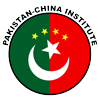Report on Post Conference Book Launch
Source : PCI Date : 12-02-2015 By : Omer Qayyum
The Senate Standing Committee on Defence, in partnership with the Pakistan-China Institute (PCI) and Konrad Adenauer Stiftung (KAS) held the Launching Ceremony of the Post-Conference Book on the Islamabad Trilateral Dialogue: China-Afghanistan-Pakistan, on February 12, 2015. This Book represents a complete record of the two day international conference held on October 19 and 20, 2014, the second in a Trilateral Dialogue series undertaken by the Pakistan-China Institute, the first of which was held in Beijing in August 2013.
The ceremony was held at the Pakistan Institute for Parliamentary Services (PIPS), in Islamabad. Dr. Gerhard Wahlers, Deputy Secretary General and Head of European & International Cooperation of Konrad Adenauer Stiftung (KAS), was the guest of honor on the occasion. A panel of experts, constituting Former Ambassador to Afghanistan and Secretary, National Security Division, Mr. Muhammad Sadiq and Mr. Ahmed Rashid, journalist and distinguished author of the books ‘Taliban’ (2000) and ‘Descent into Chaos: The U.S. and the Disaster in Afghanistan, Pakistan and Central Asia’ (2008), addressed the occasion. The event was attended by members of the Senate Defence Committee, representatives of the diplomatic community, members of academia, heads of think tanks and the media.
Senator Mushahid Hussain, Chairman Defence Committee and Chairman of the Pakistan-China Institute, gave a welcome address to those assembled. He recalled that he first floated the idea of a China-Afghanistan-Pakistan: Trilateral Dialogue during his meeting with Afghan President Hamid Karzai. He reiterated his belief that it is imperative for Pakistan and Afghanistan to accept the role of China in the Afghan peace process. He added that the Trilateral Dialogue was held to recognize the role the three neighbors can play to bring peace and prosperity to the region. He also informed the distinguished attendees that the next round of the Trilateral Dialogue would be held in Kabul this year.
The Senator also emphasized that China is now a key player in the Afghan peace process and it has now taken a more proactive role to engage all stakeholders to ensure peace in Kabul. Concluding his address, Senator Mushahid Hussain Syed thanked KAS and PCI for providing support in the organizing the event.
Speaking on the occasion, Dr. Gerhard Wahlers, Deputy Secretary General and Head of International & European Cooperation of Konrad Adenauer Stiftung (KAS), expressed his privilege and honor for being a part of the Book Launch. He shed light on the role and purpose of KAS and appreciated the initiatives the organization had undertaken in collaboration with the Defense Committee. He was of the view that Asia is the most dynamic continent of the world; however, it faces many political, social and security challenges. Highlighting the aim of the Trilateral Dialogue, Dr. Wahlers explained that it projected the challenges faced by Afghanistan, Pakistan and China and provided a platform for the representatives from these countries to deliberate on future prospects collectively.
Ambassador Muhammad Sadiq offered an informative insight on Pak-Afghan relations and believed that in the backdrop of NATO forces withdrawal, the future for these relations is bright. He was of the view that Kabul and Islamabad are important for each other and there is an urgent need to stop the blame game that has continued since a long time. He remarked that the relationship between the Afghan and Pakistani people couldbe a major tool of soft power, as this relationship is such that it cannot be contested. He added that the two countries share a common language and similar cultural values. He termed the cultural links as ‘soft power’ that can be used to foster deeper and more meaningful ties between the two countries. He concluded his talk by reiterating his belief that Pakistan and Afghanistan should be friends.
Ahmed Rasheed, in his address, appreciated China’s role in the Afghan peace process and indicated that this is the first time China is playing an arbitrary role outside its border. He emphasized on the importance of the revival of the old Silk Road and the China-Pakistan Economic Corridor, but he also expressed his fears that the prevalent security situation could be detrimental to these projects. In relation to Pakistan, he questioned the political will in operating against the terrorists as well as the implementation of the National Action Plan. He further emphasized that both, Afghan and Pakistani terrorists, are dependent on each other for support and exchange of military intelligence would prove helpful in eradicating the strength of these terrorist groups. He opined that a dialogue with the Taliban should be encouraged and the international community’s initiative in this regard must be supported. He suggested that China may play a role in the Afghan peace process, but it should not compromise its neutrality in relation to its neighbors.
A question and answer session followed the addresses, where a number of questions were raised and observations were recorded in relation to Pakistan’s foreign policy, Pak-Afghan relations, China’s role in the Afghan peace process, the issue of the Durand Line, and trade and economic prospects between Afghanistan and Pakistan. The panelists addressed the questions in great detail and put forth Pakistan’s stance on these issues.
To conclude the ceremony, Ronny Heine, resident representative of KAS thanked the guests for their attendance and appreciatedPakistan-China Institute’s efforts in organizing the event and the publication of the Post-Conference Book of the Islamabad Trilateral Dialogue.
